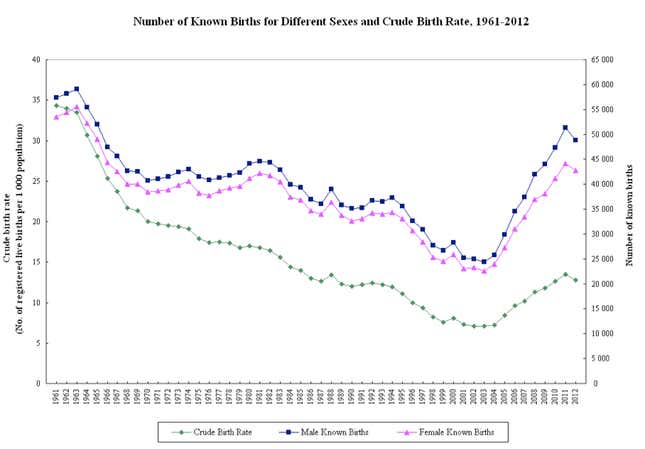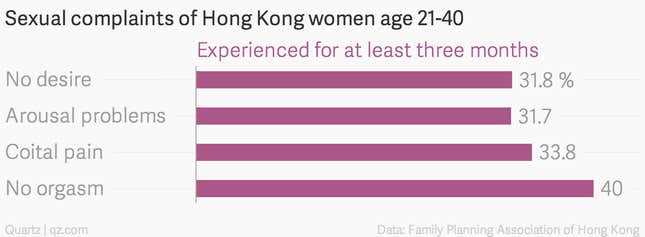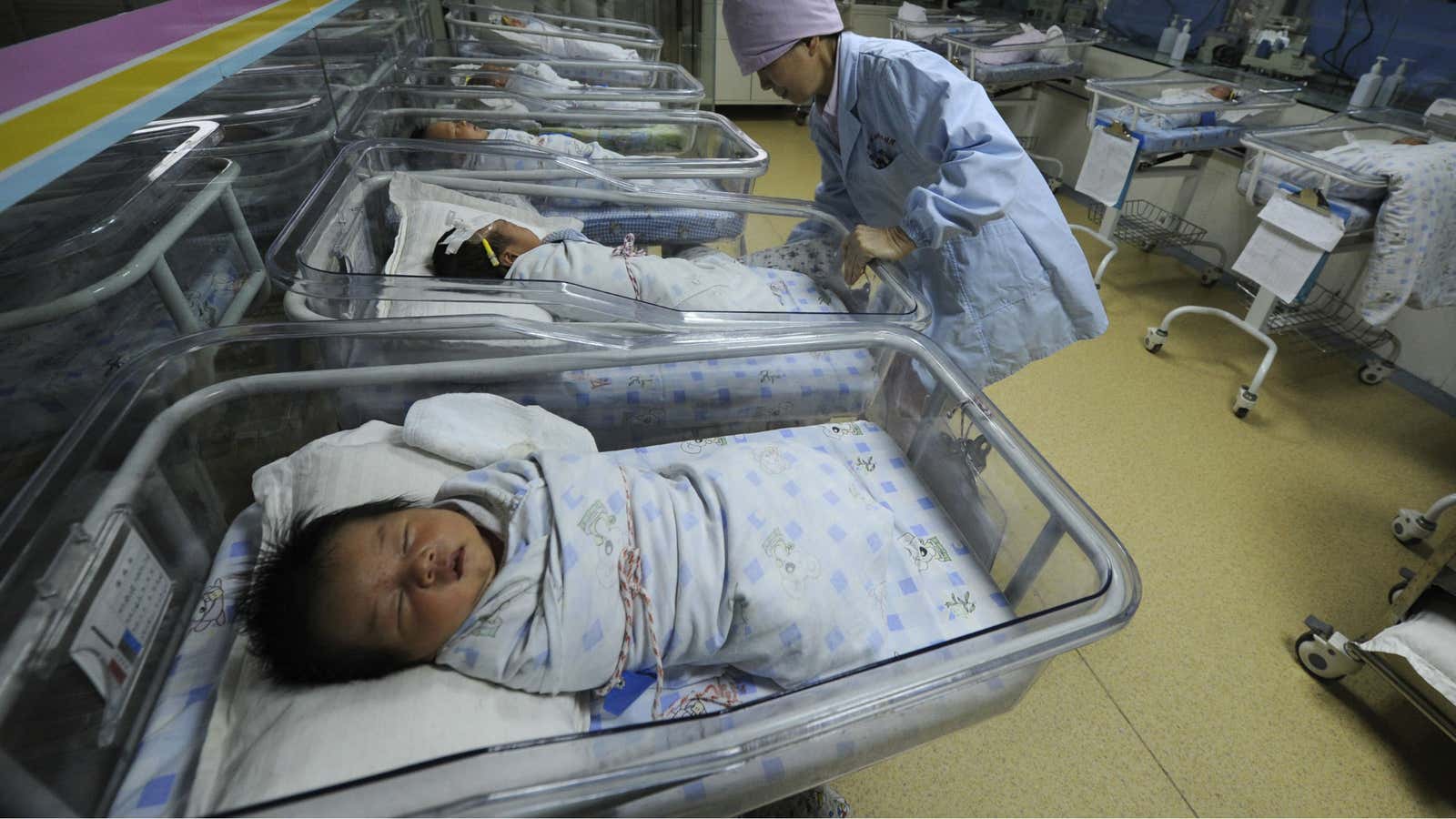Hong Kong’s Family Planning Association has just released a new study that highlights what it calls a “prevalence of sexual problems” among Hong Kong women, including “low sexual intimacy and coital frequency.”
How much sex Hong Kongers are having is important to the government, which hopes to offset an aging population that is projected to leave the median age in the city at 52 by 2014. Hong Kong’s crude birth rate has dropped from 34.4 births per 1,000 people in 1961 to 12.8 per 1,000 in 2012 according to government statistics (the green line below). The slight bounce in recent years can be attributed to mainland Chinese women giving birth in Hong Kong.

The cost of having a second child in Hong Kong and women deferring marriage for their careers are oft-cited reasons for the low birth rate, but the recent Family Planning Association study presents an alternate explanation.
It includes a survey of over 2,100 women between the ages of 21 and 40, which found that 25% of these women were having sex less than 12 times a year, leading to “low fertility.” Nearly 60% had what was defined as at least one long-running (lasting three months or more) “sexual problem” over the past year that reduced their frequency of intercourse:

The study also included a survey of over 370 women from age 40 to 60. Things were even worse there, with 77% reporting similar “sexual problems” that lasted for three months or more in the past year, including 41% who had no orgasms.
The study’s findings were quickly translated into headlines like “Women’s low sex drive blamed for Hong Kong’s falling birth rate,” but that analysis seems to suggest these “problems” exist in a vacuum. There is no corresponding survey of these women’s male partners, but even the kindest interpretation of the women’s answers would indicate that Hong Kong’s men could step up their game in the bedroom a bit.
The family planning group suggests that Hong Kong couples should “overcome shyness,” and if they are planning to get pregnant they should have sex several times a week and “enjoy every moment.” That is not the government’s only proposal to conquer the baby drought, though. Government agencies are also floating the idea of offering couples cash payments for baby-making.
